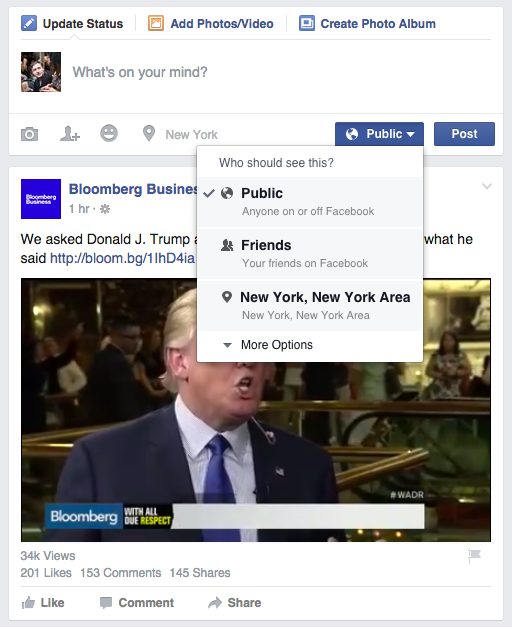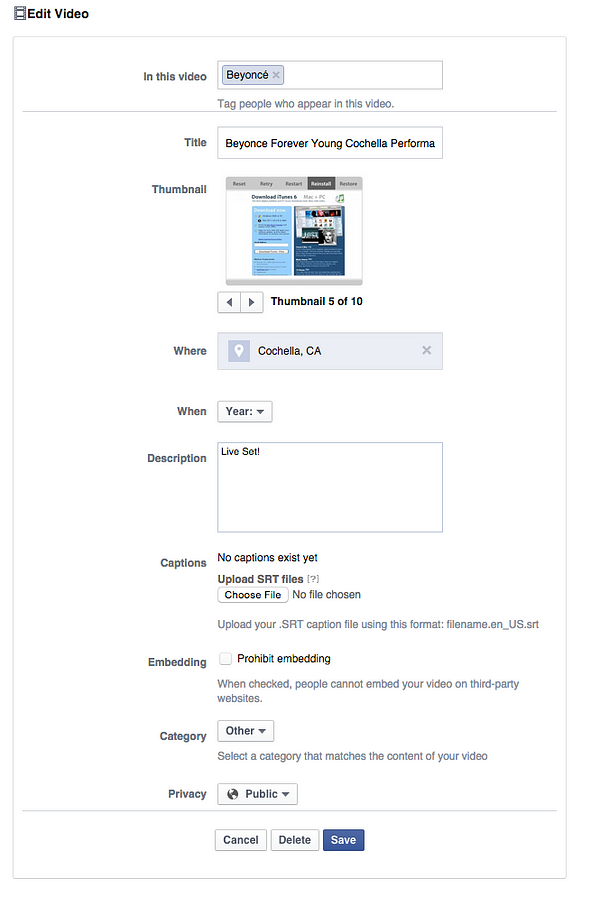Facebook’s Video Management Efforts Must Consider Songwriters
Facebook's announcement that it will be releasing a suite of tools to help rights holders remove infringing video is good news for video rights holders, but leaves artists wondering if Facebook will assist songwriters and their publishing partners in monetizing their rights as the social network's video platform continues to expand.
________________________________
By Joe Conyers III, Vice President, Technology on Downton Music Publishing
Recently, Facebook announced that it will be launching a suite of tools for video publishers to take down infringing videos. While this is a great step forward for Hollywood and other video rights holders, it is not particularly meaningful for songwriters.
Songwriters and their music publishing partners are still routinely the victims of copyright infringement on both Facebook’s video platform and on Facebook-owned Instagram. Facebook has the opportunity to be a friend to songwriters and artists and not take the normal route of digital services — enabling widespread infringement first, and then later asking the music industry for forgiveness.
The technology which Facebook is using to identify video and musical content contained within videos, Audible Magic, does a decent job of finding videos that feature original sound recordings and/or video. However, many of the songs that we represent are featured on Facebook in the form of fan covers, live versions, karaoke, remixes, lip syncs etc. Audible Magic’s technology is not geared to identify these versions unless they are officially released. While Facebook does not allow you to search by song, we can see this huge user generated derivative work phenomena all over YouTube. Take, for instance, Alphaville’s “Forever Young” and the thousands of versions that exist on this platform such as Beyonce singing it at Coachella, Imagine Dragons singing it in Brazil, or even this gentleman’s guitar solo version. A company like Facebook has first in class technology and like Youtube should be able to build tools for songwriters and publishers to monitor the platform for their works at scale.
Facebook’s video platform is finally material
Facebook readily admits that video is a growing aspect of their business, and advertisers are beginning to look at their video offering as a very serious competitor to Youtube. Analysts are estimating Facebook will rake in around $3.8 billion in video advertising revenue by 2017. Per this press release, Facebook appears to be extending an olive branch to its video partners and investing in its partner platform. This seems to only come after pressure by the press and partners around a form of online piracy called “freebooting” — the phenomenon of re-posting video content as if your Facebook Page was the original creator of the video, thereby infringing on the original video poster’s copyrights.
We applaud the growth of Facebook Video, and music rights holders and their songwriting partners could be huge winners in this process if we can meaningfully partner with Facebook and help them to navigate the maze that is rights management.
What we don’t need is more deals like VeVo or Soundcloud — Facebook Should Directly License with Publishers
Songwriters should be a little concerned about how Facebook intends to license their music. While Facebook is rumored to be in talks with major labels to license music videos and courting artists directly, to our knowledge it doesn’t appear that such discussions are ongoing with publishers. If Facebook intends to create a music video platform without licensing music from publishers directly (as Vevo unfortunately did), this will be yet another instance where the labels are inserting themselves between songwriters and their royalties. Historically, when labels “handle” songwriter royalties, these payments are delayed and not transparent. It is our sincere hope that Facebook will license songwriters’ copyrights directly with their respective music publishers.
If Facebook seeks to do a deal like the one we’ve done with Soundcloud, where in practice they will only be paying out for major label and professionally released content it would be disastrous for songwriters. The Soundcloud deal allocates a percentage of all royalties to make up for the fact that Audible Magic is unable to identify non-original recordings (i.e. Live, covers) on their platform. Even more problematic, when Audible Magic can’t identify a song Soundcloud “blackboxes” the royalties from these versions. That is, it pools all of the revenue from unmatched performances and allocates those royalties based on a set formula that usually disproportionately favors “Top 40” songs. While blackboxing of royalties is necessary in some form to account for portions of content where ownership is undeterminable across large platforms, it shouldn’t be the first resort in 2015. Blackboxing is largely a holdover from the times when we didn’t have sophisticated rights management tools and lacked comprehensive metadata. A company with the means like Facebook can and should be able to build tools for publishers to monitor the platform for their works at scale, thereby reducing the amount of money blackboxed to a much more reasonable amount.
Facebook isn’t like other platforms, it’s both private and social
Currently, Facebook is not monetizing song compositions on its platform. We would like to see them implement a revenue share model, similar to Youtube’s. Facebook must also allow the ability to search its videos for infringing content. Even if such a search is only available to certain partners, songwriters and their representatives need a way to monitor the service. Facebook will need to develop tools to properly manage their platform from a rights management perspective.
While the above are some general thoughts on how Facebook can roll out licensing of their site, we also wanted to give them some specific suggestions.
Downtown’s initial practical operational suggestions on Facebook running a rights management platform are as follows:
A chance for Facebook to be a market leader in managing music rights.
Youtube’s CMS has been a learning experience for publishers large and small, in what it takes to properly track a catalog across digital services. Music publishers have been getting their houses in order so that we too can be better partners to digital services through more comprehensive metadata collection. Luckily the additional revenue from digital services has enabled some music publishers to hire additional staff, partner with specialists and build technology to better search for videos using their content.
The tenor of Facebook’s recent press release is promising and shows that it is beginning to build the teams necessary to take on the complex world of rights management. We truly hope that Facebook will allow us to be active partners with them as they take this necessary step to guarantee that songwriters are properly paid for their hard work.
Joe Conyers III is the Vice President of Technology for Downtown Music Publishing and the General Manager of its subsidiary Songtrust. Prior to joining the company Joe worked in a variety of startup to large technology, media, and finance companies in strategy, product and analysis roles. Joe attended the Seidenberg School of Computer Science at Pace University.

